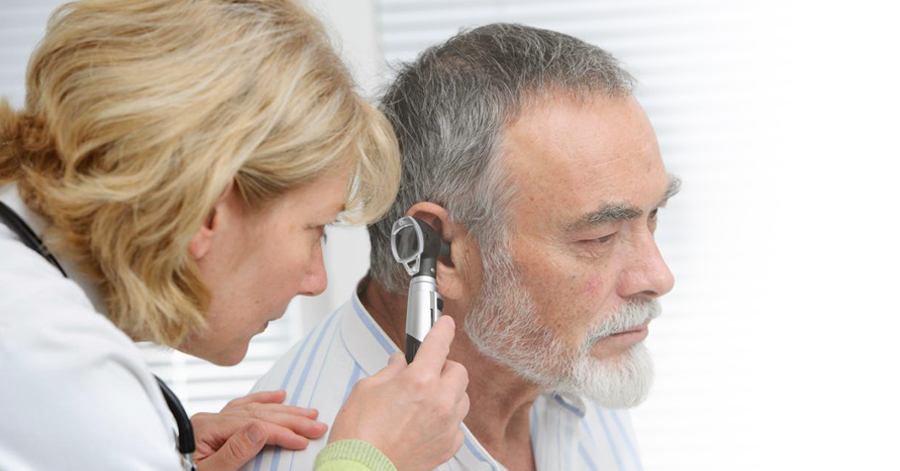Did you know there was a surprising link between hearing loss and balance disorders? Although we discussed the societal, psychological, and physical risks of hearing loss in More than Deafness: Stunning Side Effects of Untreated Hearing Loss, we feel it’s important to delve deeper into the link between hearing loss and balance disorders.
Simply put, hearing-related clumsiness and vertigo are no laughing matter. After all, a loss of balance is the dangerous precursor to slips and falls. And, falls, while a common feature in comedy skits, are leading cause of emergency room visits in the country. Continue reading to learn more about the surprising link between hearing loss and balance disorder.
What Exactly Is a Balance Disorder?
A balance disorder is a condition that leads to feelings of dizziness or unsteadiness. A person suffering from balance issues may feel as if they are spinning or floating, even while sitting down. During movement, people affected by these disorders might experience shifts like a sailor stuck on the stormy seas. In addition to moving difficulties, people with chronic balance issues often experience:
- Intense vertigo
- Lightheadedness
- Blurred Vision
- Disorientation or confusion
Doctors estimate 50 percent of US adults will face balance issues in their lifetimes. While these problems become more common with age, they’re certainly not limited to retirement homes. Dizziness, vertigo, and associated complications can strike at any age.
Introduction to the Vestibular System
The vestibular system is located in your inner ear and maintains balance throughout your body. This system is also responsible for giving you awareness of your body’s relationship with the space around you.
- The Labyrinth is the area of the inner ear that houses all the components of the vestibular system. This maze-like structure is comprised of spongy bone and soft tissues.
- The Semicircular Canals are three fluid-filled ducts nestled inside the labyrinth. Arranged at right angles to one another, the movement of liquids in these structures help track your head’s vertical movements.
- The Cupula are gel-like structures stretching across the semicircular canals like drumheads. The base of this drumhead rests against a series of sensitive hair cells, stereocilia. When you shift your head, these tiny hairs bend to follow the movement of your head.
- The Utricle and Saccule are otolithic organs resting between the cochlea and the semicircular canals. Much like the canals, they use stereocilia to track the movement of your head as it relates to gravity.
What’s the Link Between Hearing Loss and Balance?
Inner ear damage or infection occurs at the onset of many balance disorders. As time goes on, the link between hearing loss and balance disorders only grows stronger. One 2015 study found the risk of falls increases by 140 percent for every 10 decibels lost. So, even those suffering from mild hearing loss were three times as likely to experience a disastrous fall.
Hearing Loss and Balance Disorders
There are at least a dozen known balance disorders. The most common ones are:
- Positional Vertigo (BPPV) involves incorrect signals being sent to the brain. Symptoms of this condition include brief, intense episodes of vertigo following a movement of the head. Most often, the root cause is improper flexing of the cupula caused by head injury or old age.
- Meniere’s Disease is a condition characterized by sensations of buzzing or fullness in the ear as well as episodes of vertigo. While the cause is uncertain, scientists believe it to be associated with fluid volumes in the inner ear. .
- Labyrinthitis is an inflammation or infection of the inner ear that leads to dizziness and loss of balance.
- Perilymph Fistula is a condition when inner ear fluids begin to leak into the middle ear, which can lead to nausea, and vertigo. While some people are born with this condition, it can also arise from injury, sudden changes in altitude, or ear infections.
As you can tell, most of these conditions arise from problems within the inner ear. Treating the underlying issues, including hearing loss, can help lessen the severity of their associated symptoms.
Contact North Shore Hearing P.C. Today
Most people are surprised to learn the connection between hearing loss and balance. Damage to the inner ear can lead to balance issues, vertigo, and dangerous falls. As time goes on, studies continue to weave a fuller web between hearing loss and heightened clumsiness. Luckily for us, doctors can now treat many of these balance issues through medication, therapy, and auditory aids. To help prevent these issues from arising, however, you need to have your ear regularly examined by a qualified audiologist.
Contact North Shore Hearing P.C. today to schedule a free consultation.

